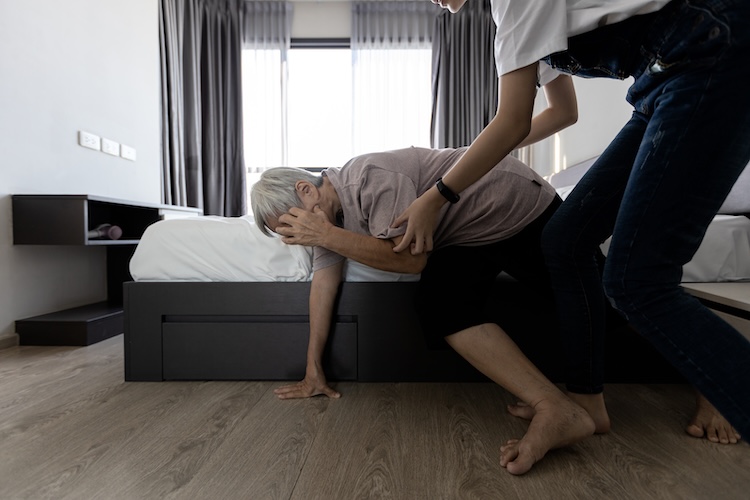
Is There a Link Between Hearing Loss and the Risk of Falling?
Are you or someone you care about worried about falling?
You’re not alone! In fact, one in three people aged 65 and older will experience a fall each year.
Since most falls lead to bone fractures and require hospitalization, the impact on an older person’s life can be significant—often resulting in a loss of independence.
Concerning fact: the risk of death is also higher among elders who have fallen in the past year, and it increases even more in cases of hip fractures.
Why Do Elders Fall?
There are many causes. On an individual level, falls can be linked to certain medications, reduced leg muscle strength, vision problems, low blood pressure, or inadequate nutrition and hydration.
From an environmental perspective, falls can happen when getting out of bed, on icy surfaces, on stairs, tripping over rugs, or wearing unsuitable footwear.
How Does Hearing Loss Affect Fall Risk?
Few people realize that hearing loss can also increase the risk of falling. Drs. Lin and Ferrucci, who conducted a study on this connection, hypothesize that people with hearing difficulties struggle to approximate their surroundings, which raises the likelihood of missteps and falls.
Another explanation for this high-risk link is:
“Balance is often taken for granted, yet it is in fact a highly complex physiological function. If hearing loss increases cognitive load, then mental resources available to maintain balance are significantly reduced.”
Did You Know That Audioprosthetists and Audiologists Can Help Reduce These Risks?
Hearing problems tend to worsen over time. One of the most compelling reasons to encourage a loved one with hearing difficulties to seek help is to remind them that early hearing screening offers the opportunity to detect issues before they become more severe. If the test shows that follow-up is needed, the person can consult an audiologist for personalized solutions.
If hearing aids are recommended to improve your loved one’s hearing, an audioprosthetist can guide them in choosing devices that best fit their needs and lifestyle. Ultimately, being proactive about hearing health helps prevent falls, fractures requiring hospitalization, and even depression linked to untreated hearing loss.
Sources :
Organisation mondiale de la Santé. (2007). WHO global report on falls prevention in older age. World Health Organization. https://iris.who.int/bitstreams/e178a56b-a9b8-402d-80a5-0d8d9ebf6a5d/download
Lin FR, Ferrucci L. Hearing loss and falls among older adults in the United States, Arch Intern, Pelletier, 2000 ; O’Loughlin et coll., 1993, Robitaille et coll., 2001; Hamel, 2001; MSSS, 2001a ; MSSS 2001b
Agence de la santé publique du Canada. (2014). Chutes chez les aînés au Canada : deuxième rapport. Gouvernement du Canada. https://www.canada.ca/content/dam/hc-sc/documents/reserch/surveillance/senior-falls-%20in-Canada-fr-07.pdf
Gagnon, C., & Lafrance, M. (2011). Prévention des chutes auprès des personnes âgées vivant à domicile : analyse des données scientifiques et recommandations préliminaires à l’élaboration d’un guide de pratique clinique. Institut national de santé publique du Québec. https://www.inspq.qc.ca/sites/default/files/publications/1241_prevchutespersageesanalyserecomm.pdf














